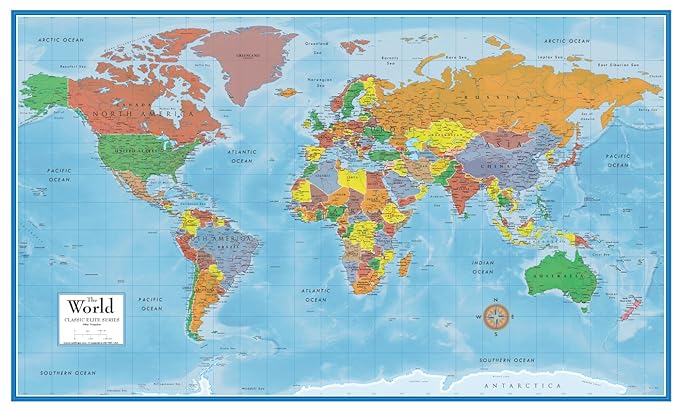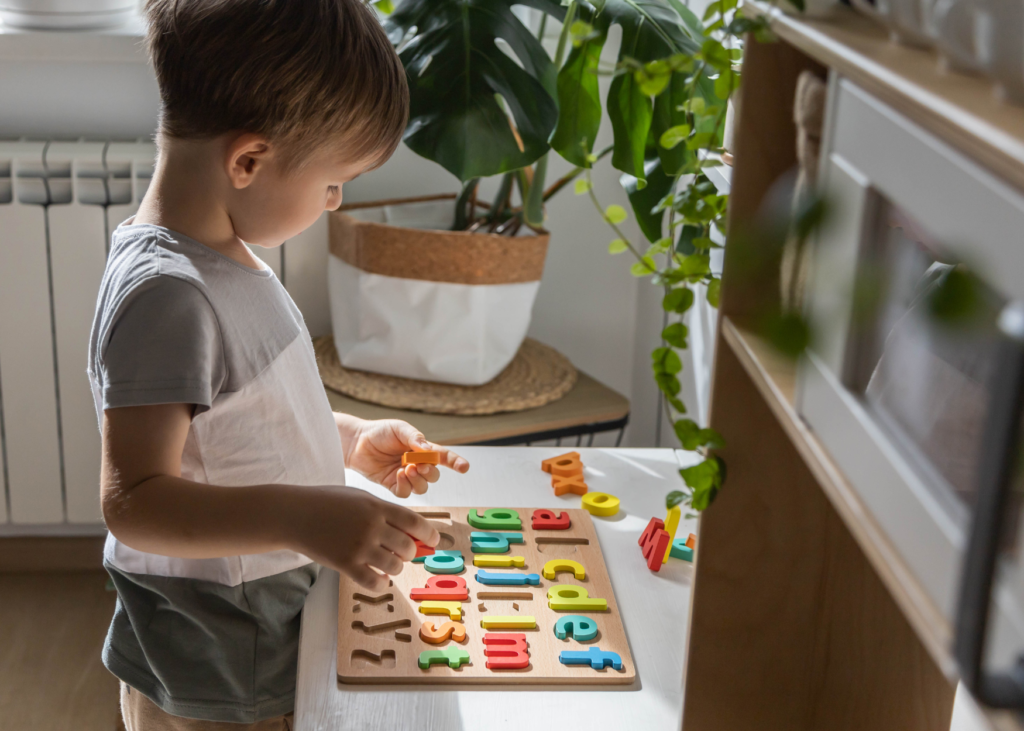This site contains affiliate links, view the disclosure for more information.
With homeschooling on the rise, many families are reimagining their homes and living spaces to better suit their kids’ educational needs. Whether that looks like a designated homeschooling room or a multi-purpose dining room, I’ll cover what you should take into consideration when planning your homeschool space, some homeschool room ideas and inspirations, and other tips and tricks to optimize your space and inspire learning, focus, and curiosity in your family’s homeschooling journey.
Table of contents:
- Designing your homeschool area: what to take into consideration
- Homeschool Room Ideas
- Inspiration from seasoned homeschool families
- Outdoor homeschool room
Whether you’re a seasoned homeschooling family or just diving into this educational journey, creating a conducive learning environment is key to fostering curiosity and focus. In this blog, we’ll explore how families are adapting their homes to homeschool their kids in various ways.
If you are still considering the option of homeschooling or in need of some motivation, check out this post for 30 inspiring quotes about homeschooling and learning!
Designing your homeschool space: what to take into consideration
As a Psychologist, designing a homeschool room (or area) is more than just aesthetics or storage space. As I am deeply aware of the fact that external environments have a HUGE impact on our cognitive functions, such as memory, attention, and learning processes, there are a few less obvious things that I think you should really take into consideration when planning or updating your homeschool space.
First and foremost, a homeschool room does not have to look or feel like a traditional classroom. Unlike traditional schools, where kids are expected to sit quietly and listen, homeschooling is all about the freedom to explore, question, discover, and learn while having fun. So, unless you really like the traditional classroom setup, your homeschool space doesn’t have to look anything like that. After all, you chose to HOMEschool for a reason.
So it’s 100% okay for your homeschool room or space to feel cozy, fun, and, well… homey!
Read more: Homeschooling in the Early Years: What to Focus On.
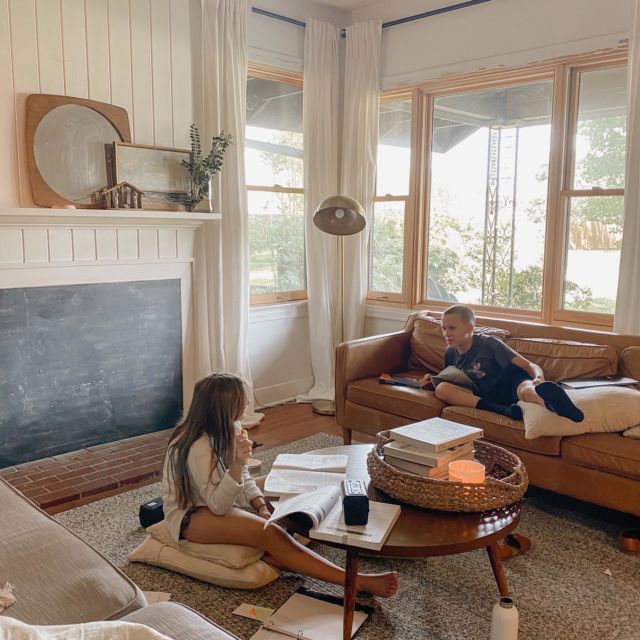
Bethany Douglass – Cloistered Away
Let’s get into some things I believe you should consider when planning your homeschool room (or space):
1. Lighting
Whether you plan on having a designated homeschool room or a multi-purpose space in your house, you should consider the amount of natural light your space gets. Natural light is extremely important in promoting a positive mood, good energy level, overall well-being, and supporting your kid’s cognitive functions. If we dive deeper, exposure to natural light (especially in the morning) is also essential for promoting the best brain development, hormonal regulation, and great sleep – but I’ll cover that in much more depth in another blog post.
Having a lot of natural light also means that you have a lot of windows or French doors around, meaning a closer connection to the outdoors, even when you’re inside.
As best as you can, seek out spaces that get a lot of natural light, as they foster a sense of openness and vitality conducive to learning.
HOWEVER, if this really is not an option in your home, you can implement some actual outdoor time as part of your daily learning activities. Bringing the classroom outside is also a great option and I’ll cover that later on in this post.
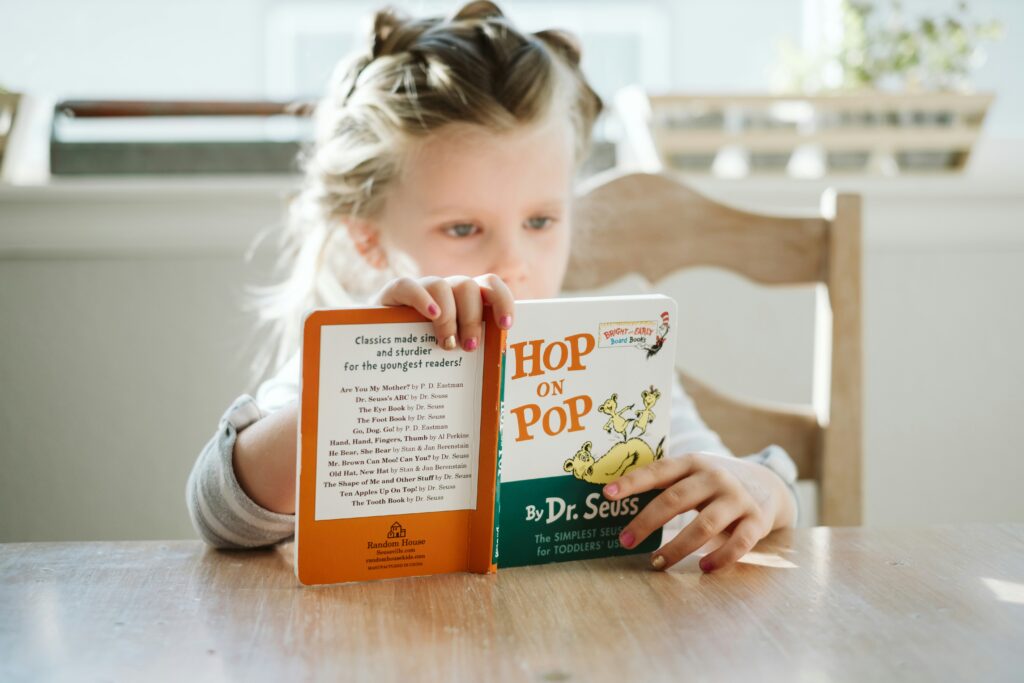
2. Less is more
Now, this is both a professional advice and a personal opinion. I often see videos on YouTube of homeschool rooms that are super colorful and crowded with toys, materials, and resources and, honestly, that’s just not my vibe!
The excess of things and information can be very distracting and overstimulating for kids, and, personally, it makes me a little anxious as well!
A more minimalist style can be very beneficial for both you and your kids. (And makes it way easier to clean up and organize!)
When it comes to a learning environment, less really is more.
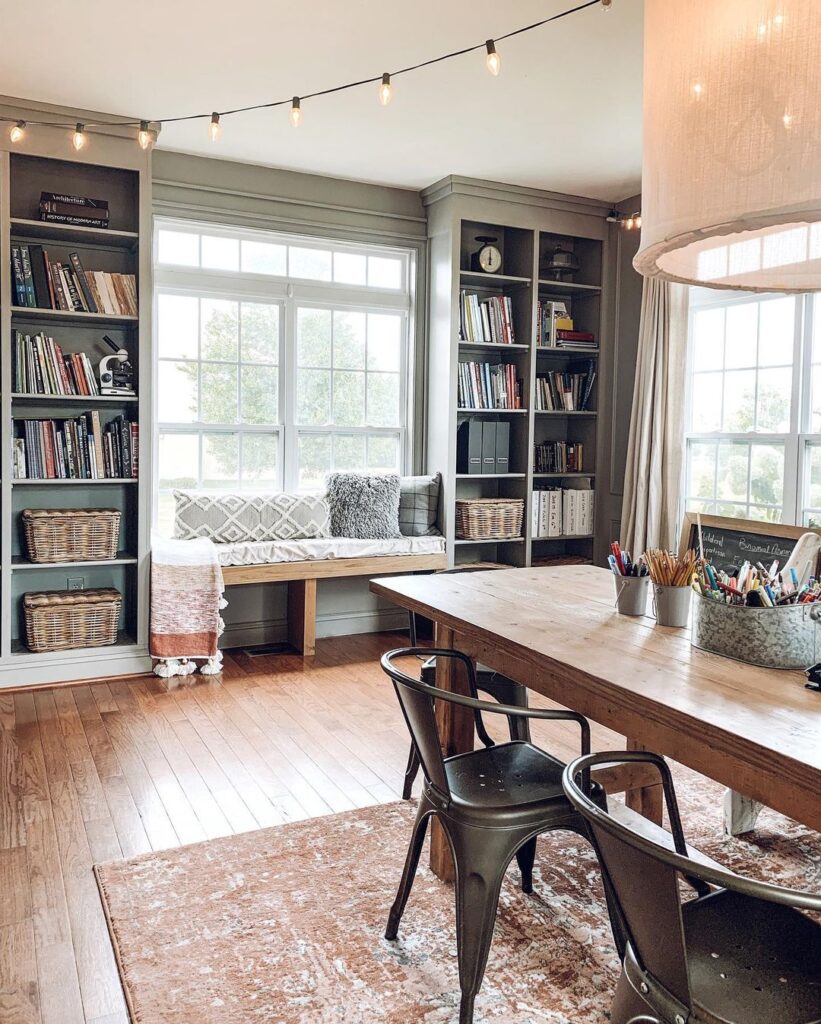
3. Colors
On the same note, colors also really influence our inner state. Think about a bright red and a soft pale pink. They can instantly impact our moods and feelings in very different ways.
Lighter, softer, and more neutral colors are more calming and help reduce distraction and promote focus.
I personally prefer having the main colors be neutral and natural, as many of the kids’ books, toys and materials are already bright and colorful.
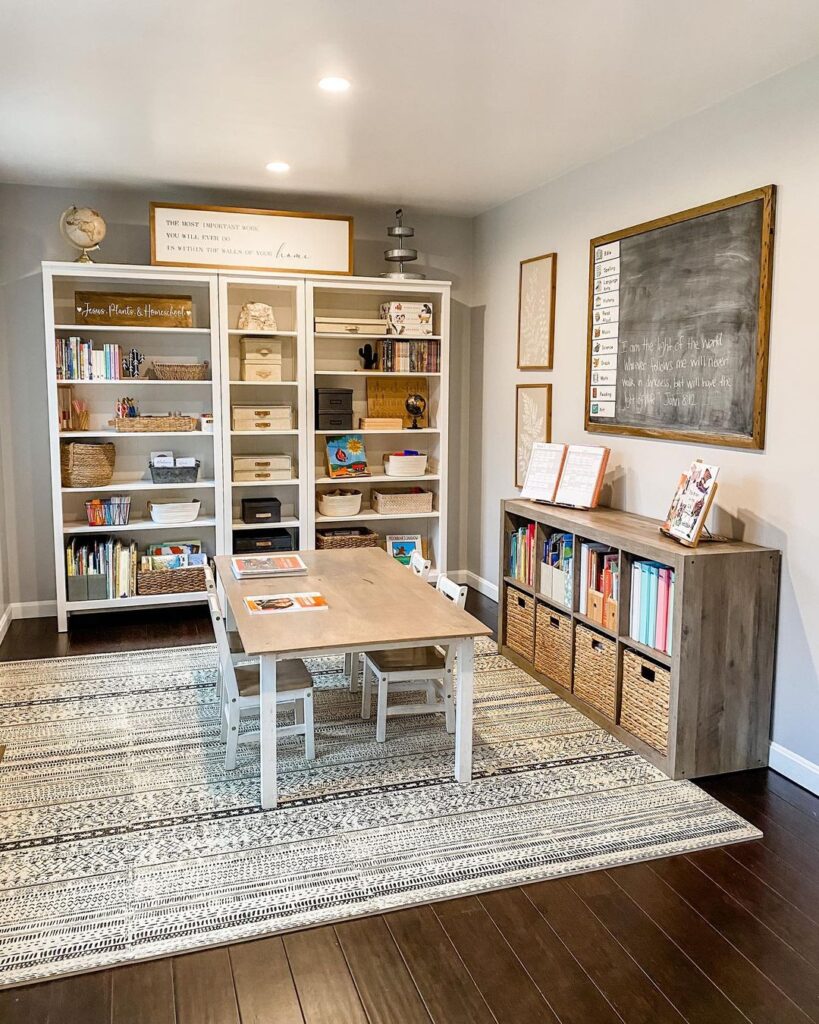
4. Functionality
There are a lot of things to take into consideration when designing your space for functionality. For instance, if you do not have a designated homeschool room and are planning on homeschooling in the dining room or some corner around the house, dual-purpose furniture, objects and even decor can be your best friends! A map that is both aesthetically pleasing and a great educational asset is always a great choice!
Functionality also means taking into consideration your kids’ age and height when choosing furniture such as chairs, tables, and bookshelves. Chairs they can get on by themselves and books they can pick independently might not seem like a big deal now but are so helpful on a daily basis when things get hectic. It’s also great for promoting autonomy and helping your kids build confidence and cooperation.
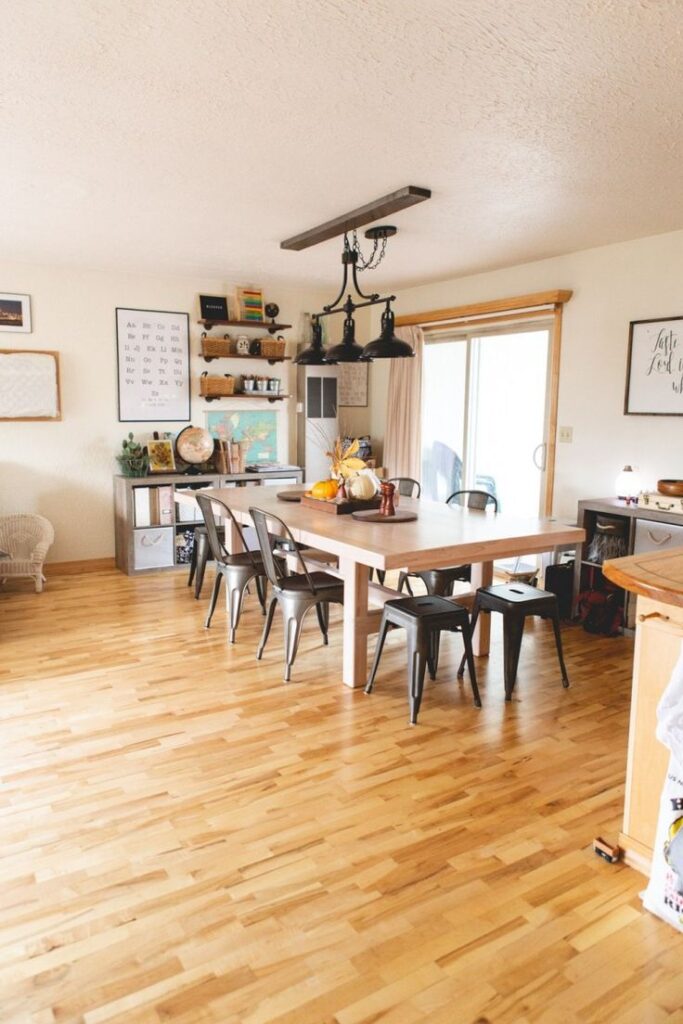
5. Storage
Storage is a very very important thing in homeschooling. Aside from all the books, toys, and resources you already own, kids are constantly producing materials and gathering things that need to be stored. With time, things might start to pile up and get messy.
The type of storage space you’ll choose will of course depend a lot on whether you’re designing a homeschool room or optimizing another room in your house. If that’s the case or if you have a very small space, try:
- maximizing the vertical space you have available
- using portable storage caddies or carts to keep frequently used items
- rotating supplies seasonally.
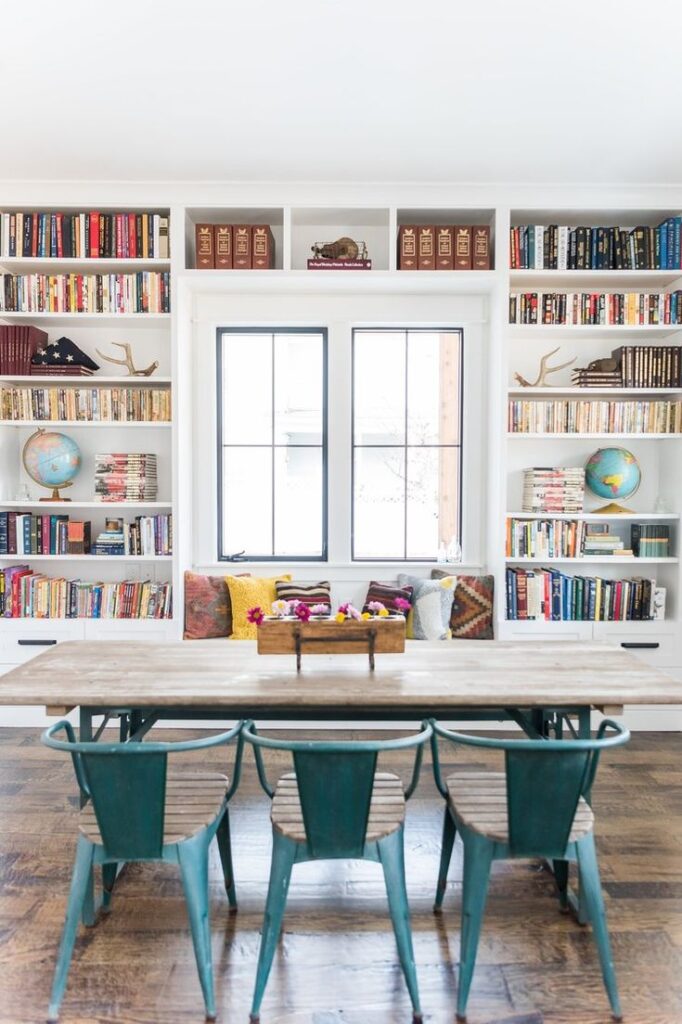
6. Style
When it comes to style and decoration, it’s all about personal preference and what truly speaks to you. It is easy to compare your home to those cute and organized Pinterest-style homeschool rooms, but the truth is, your family’s space should reflect your family’s values, interests and unique personality. That is the best way to create a space that feels like home. As much as we can draw inspiration from others (and that’s great!) don’t put aside your unique touches and your family’s interests to make your space look more Pinteresty.
That being said, my personal taste and style are reflected in these 4 themes:
- Nature-Inspired: Bringing the outdoors inside through natural lighting and natural-material pieces of furniture and toys, incorporating plants, botanical prints, and earthy tones.
- Vintage Charm: Embracing nostalgia with thrifted objects, decor, toys, retro educational posters, etc.
- Global Explorations: Fostering curiosity and a love for culture and diversity, decorating with maps, flags, globes, and artifacts from around the world.
- Cozy Retreats: Creating inviting nooks and corners where kids can retreat for quiet reflection, independent study, or cozy reading sessions.
Homeschool Room Ideas
Checkout some amazing homeschool spaces for more ideas and inspiration:
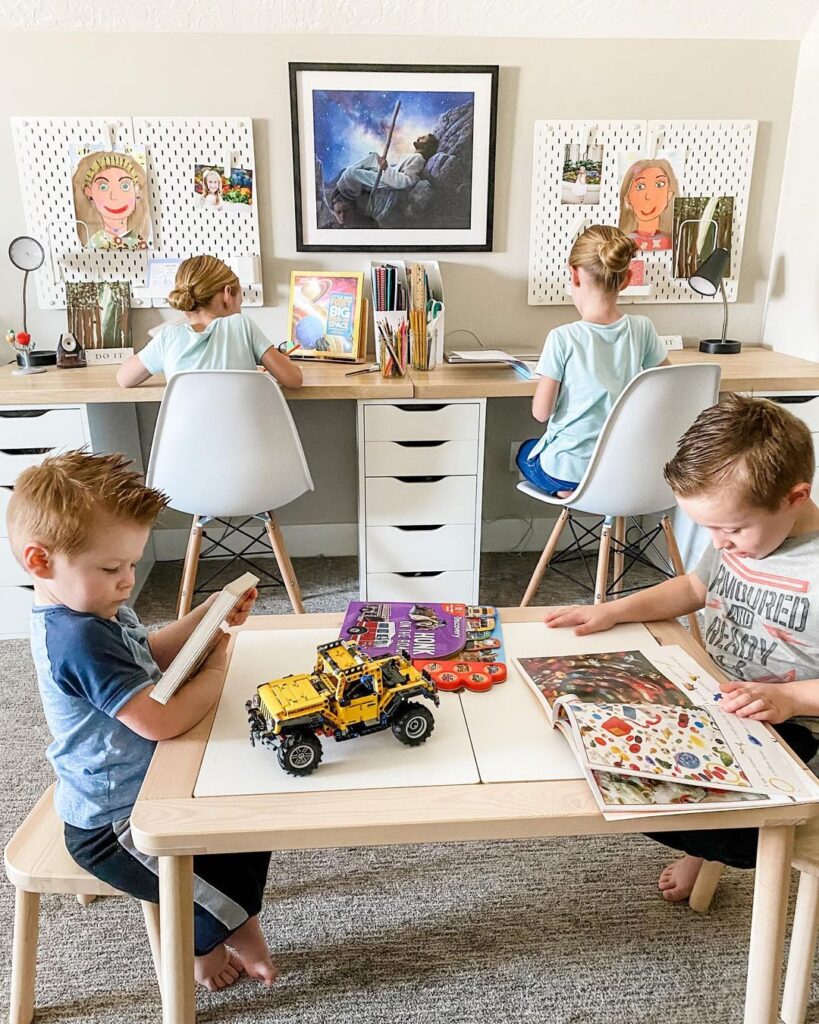
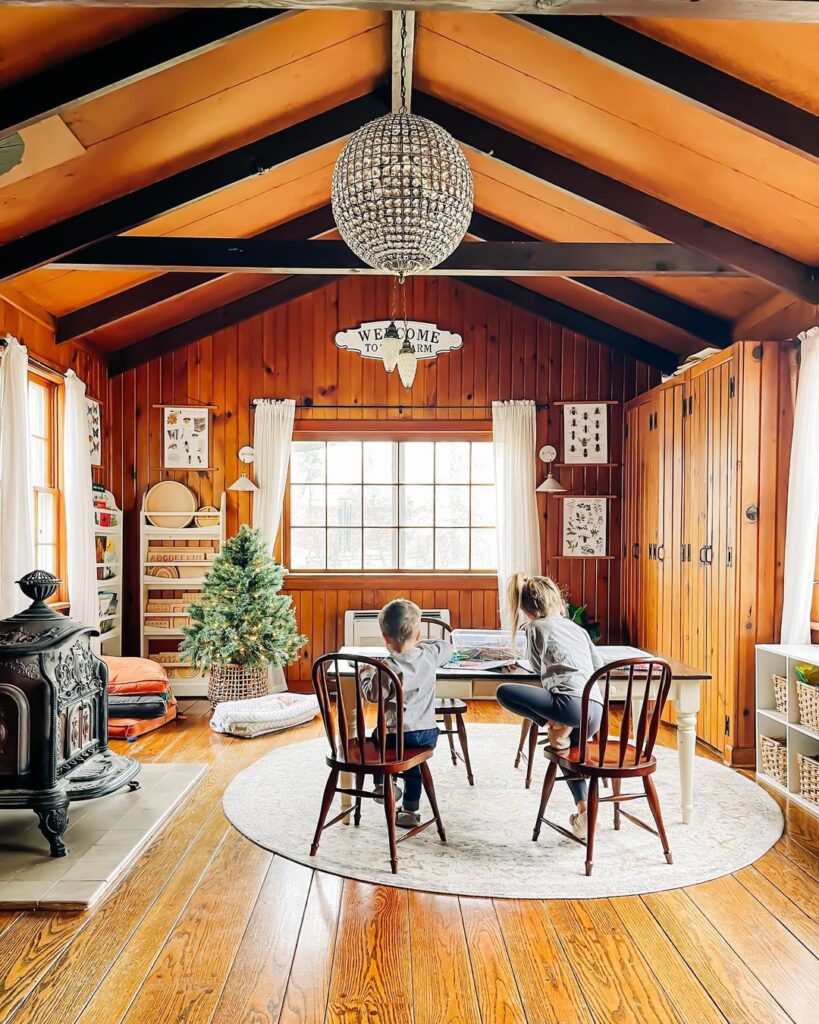
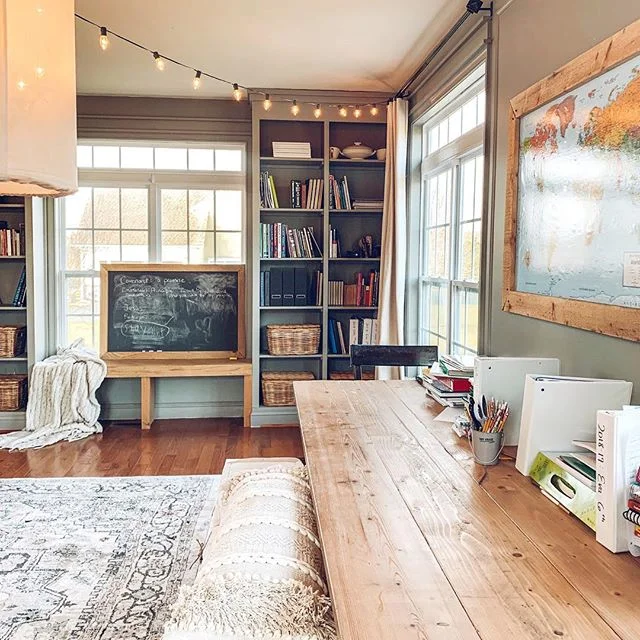
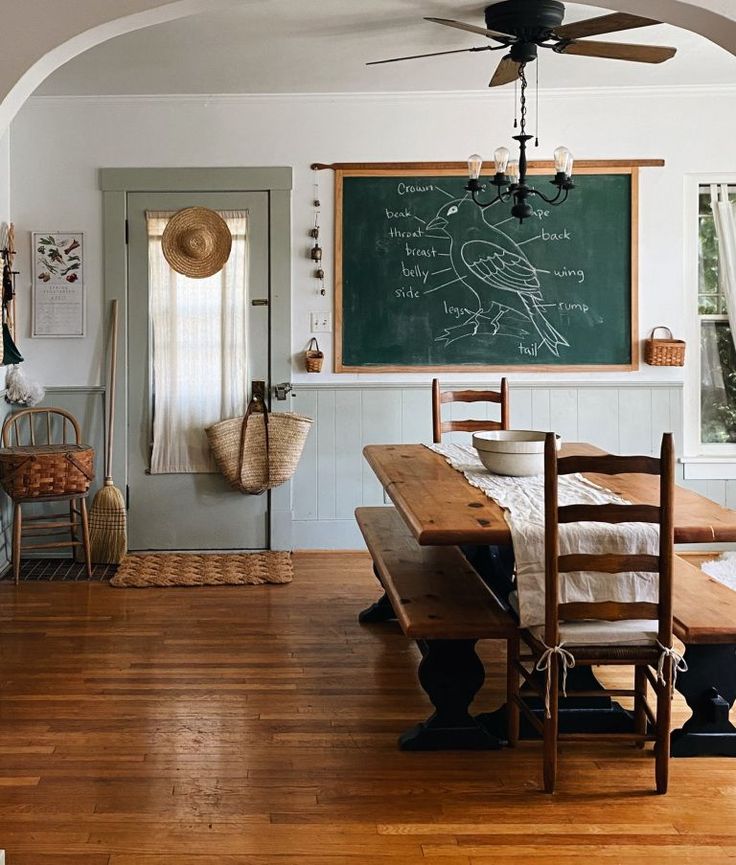
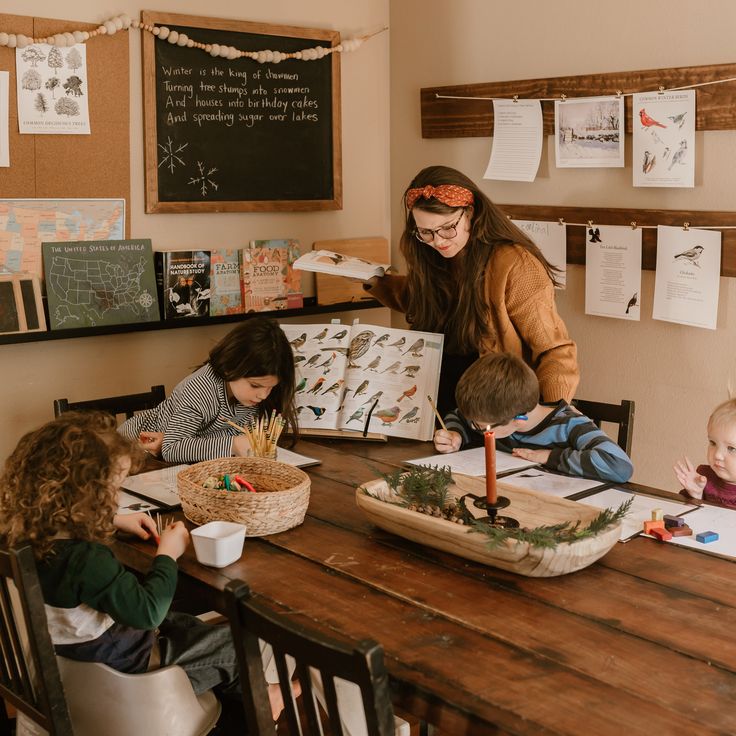
Inspiration from seasoned homeschool families
AKA Jodi Mockabee.
If you’ve been in the homeschooling journey for a while now, then you have probably heard of Jodi Mockabee – homeschool mom of 5 that has an amazing talent for creating beautiful, functional and extremely inspiring spaces. I love her style so much, that I have dedicated this entire section just to showcase some of her creations.
Her family has moved quite a lot in the past years and she has created some incredible homeschool rooms in each house they have lived in.
This is a picture from their just-renovated home in South Dakota.

Check out her Instagram here.
Unfortunately, I couldn’t find pictures from other angles of their current homeschool room, but I have screenshotted some videos from her Instagram highlights, which you can find here.
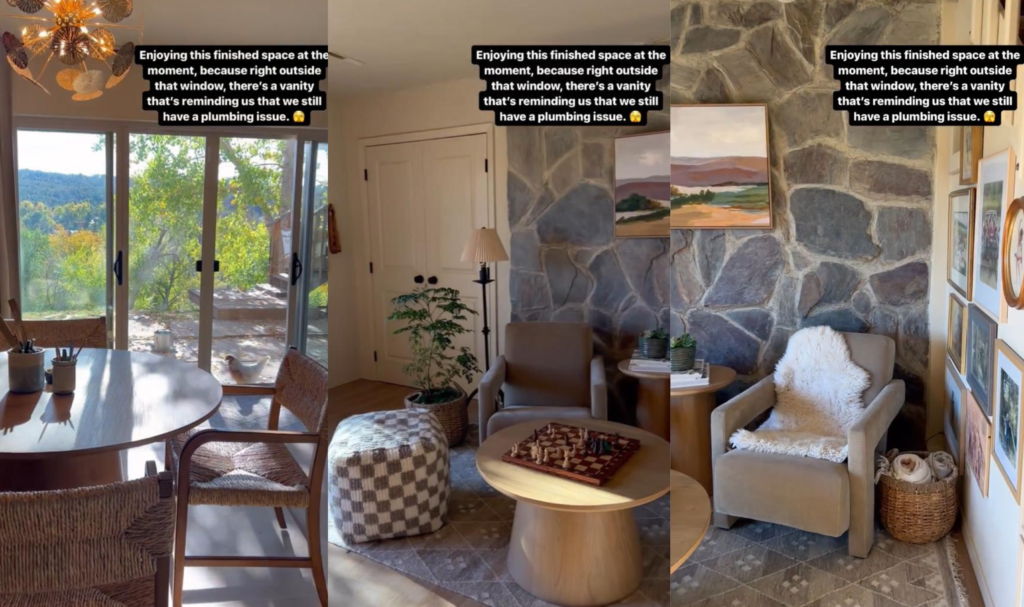
It seems that they usually do Morning Collectives on their couch.
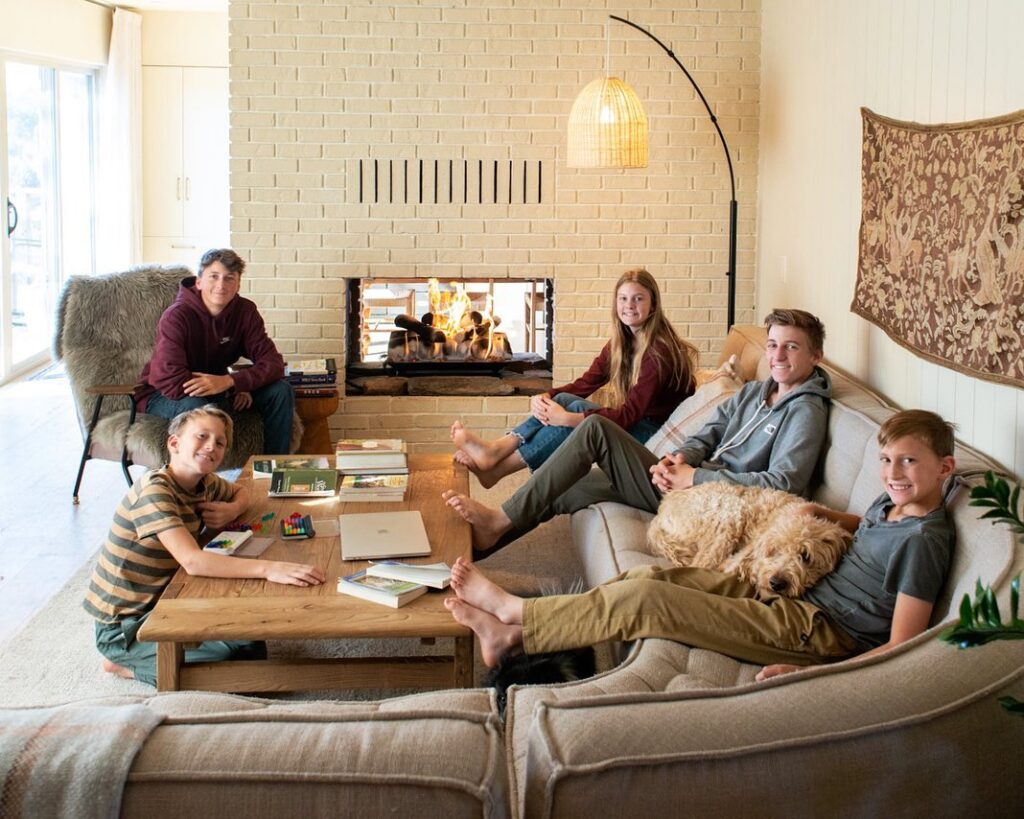
One of the things I like the most about all of her homeschool rooms is the concept of a large-table-for-all while still having some individual spaces where her kids can go to work on individual activities or just have some reading time.
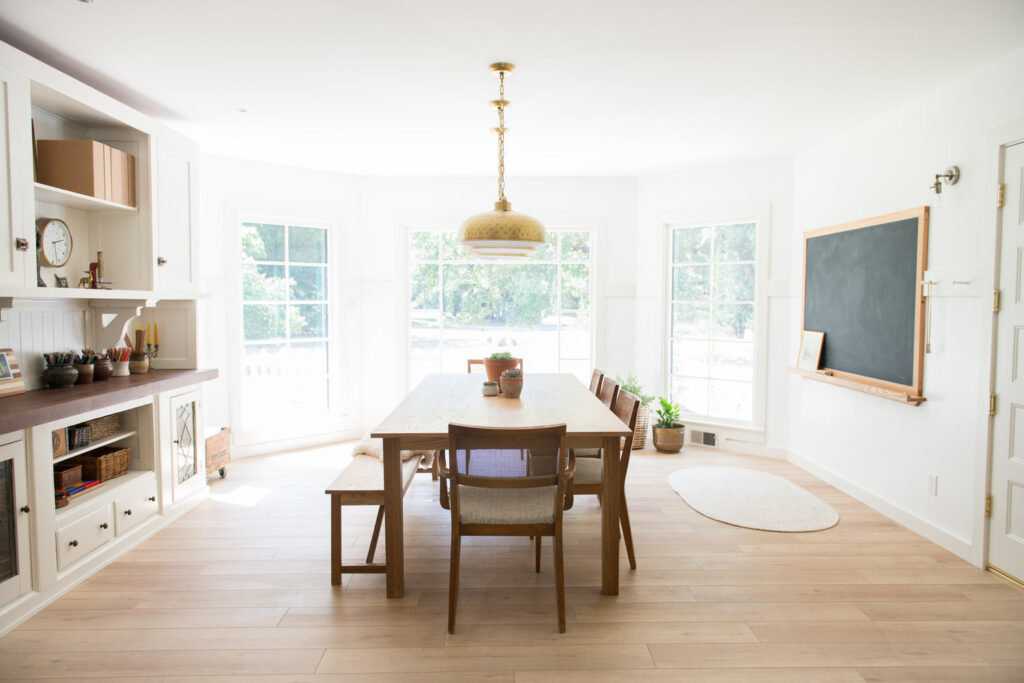
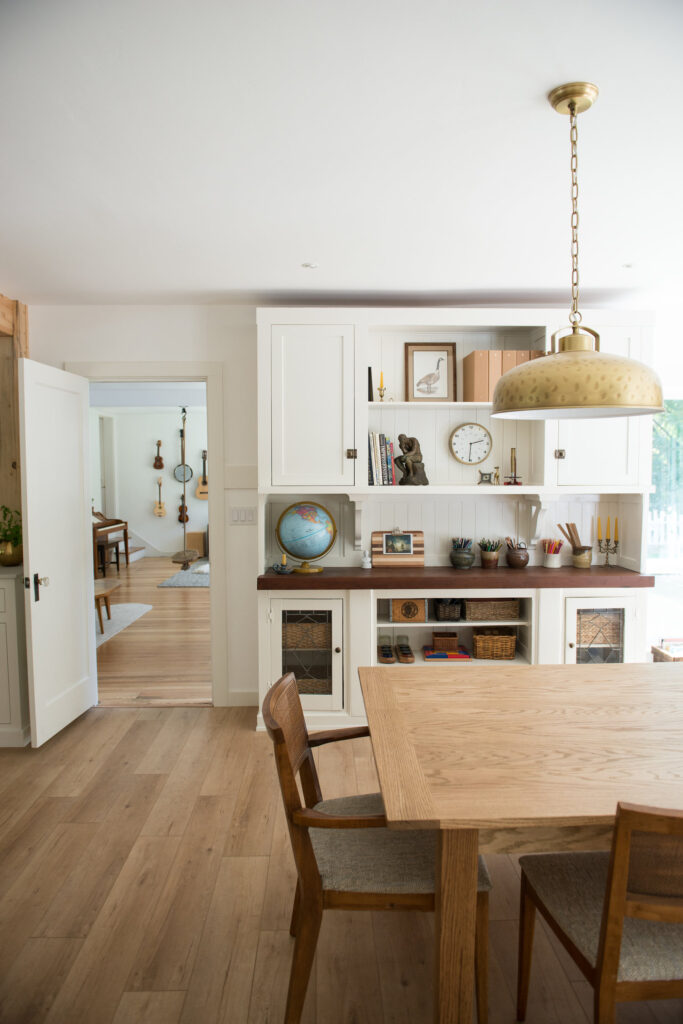
I’m also adding pictures from her previous homeschool rooms for additional ideas and inspiration.
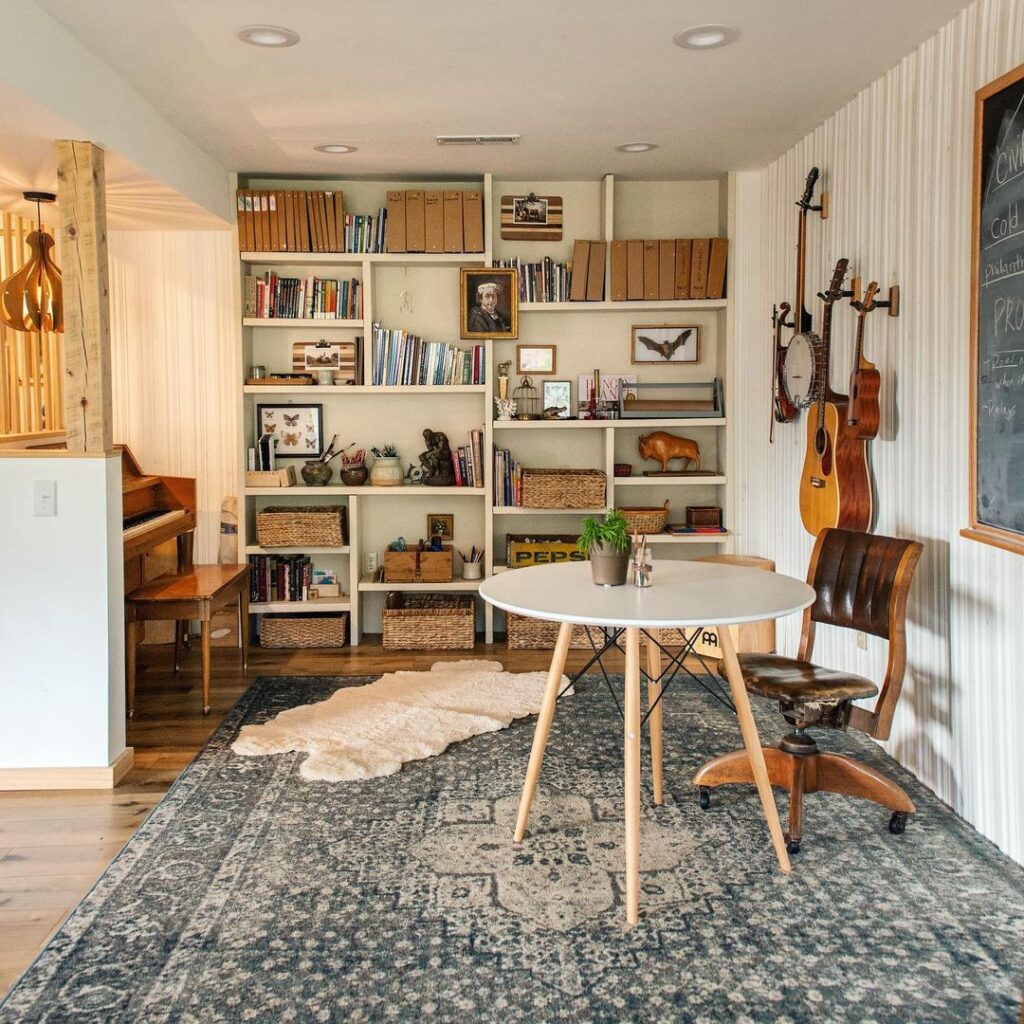
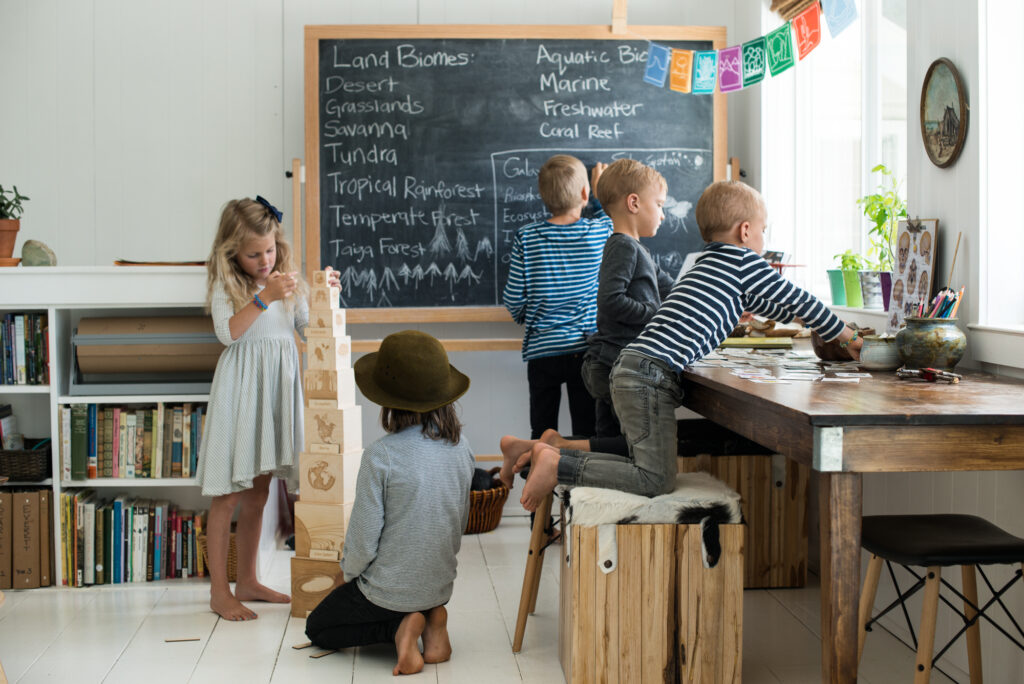
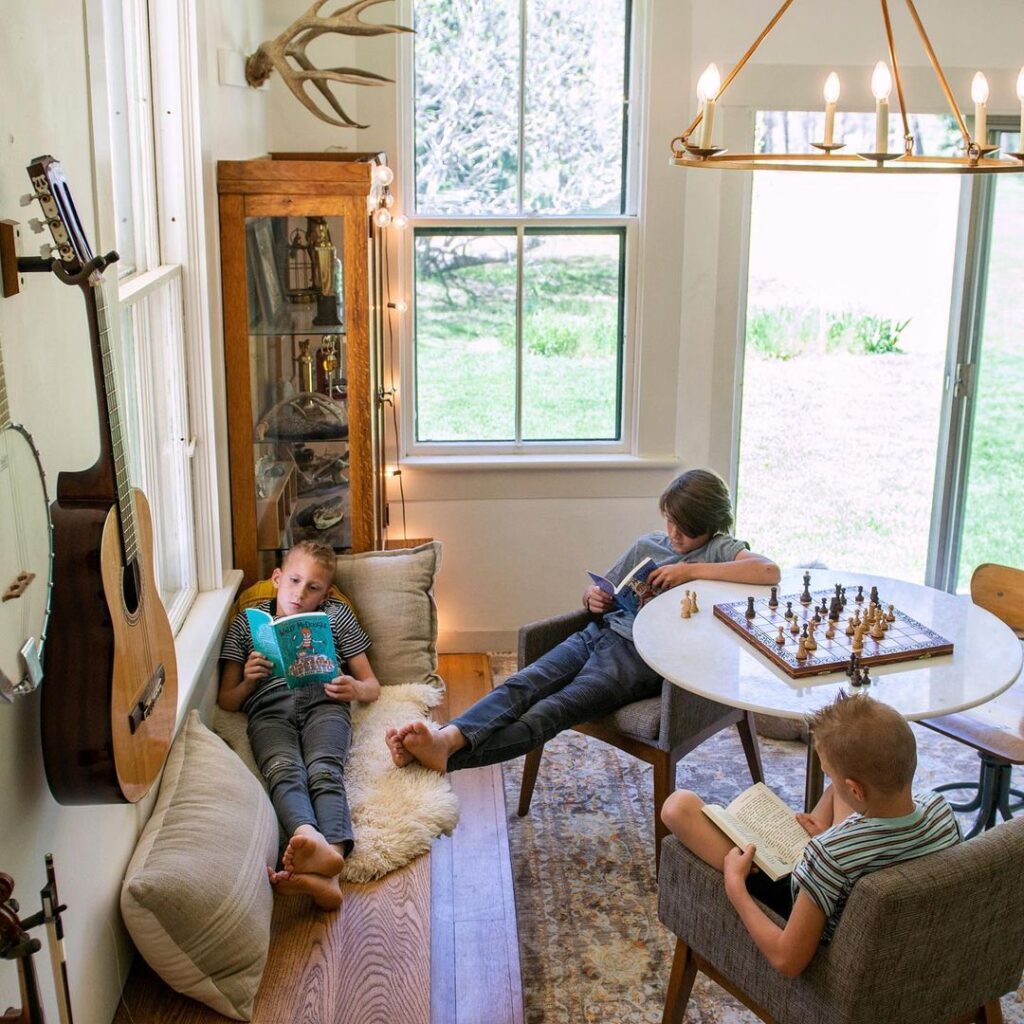
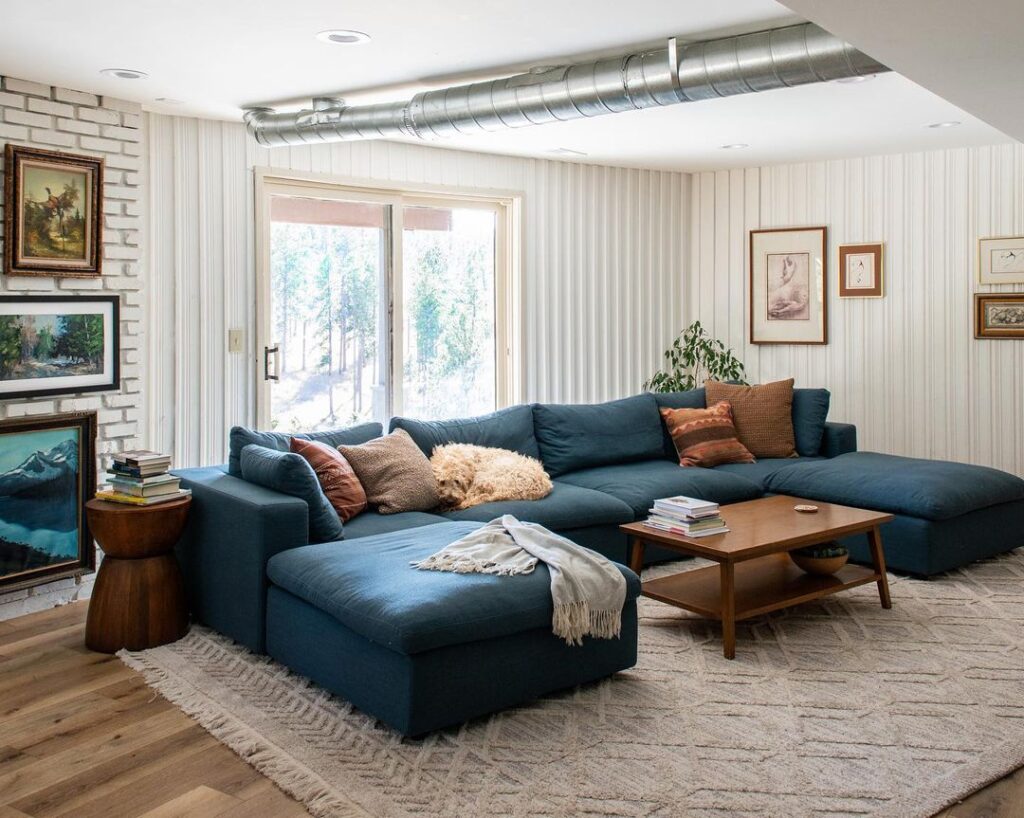
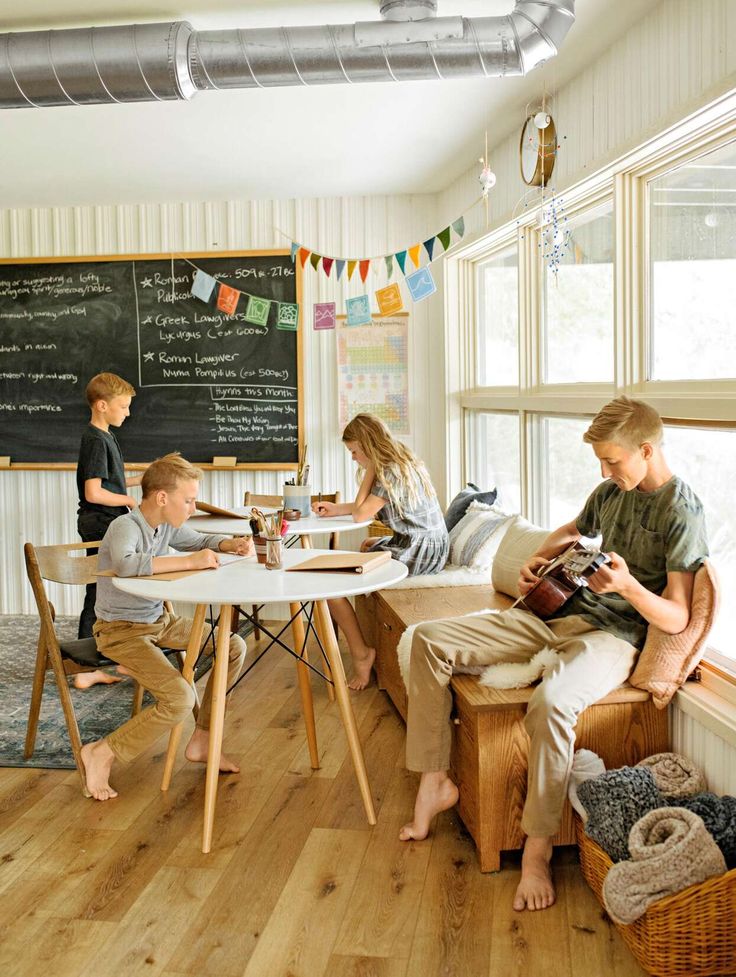
Check out their previous home’s living room! So cozy and inspiring!
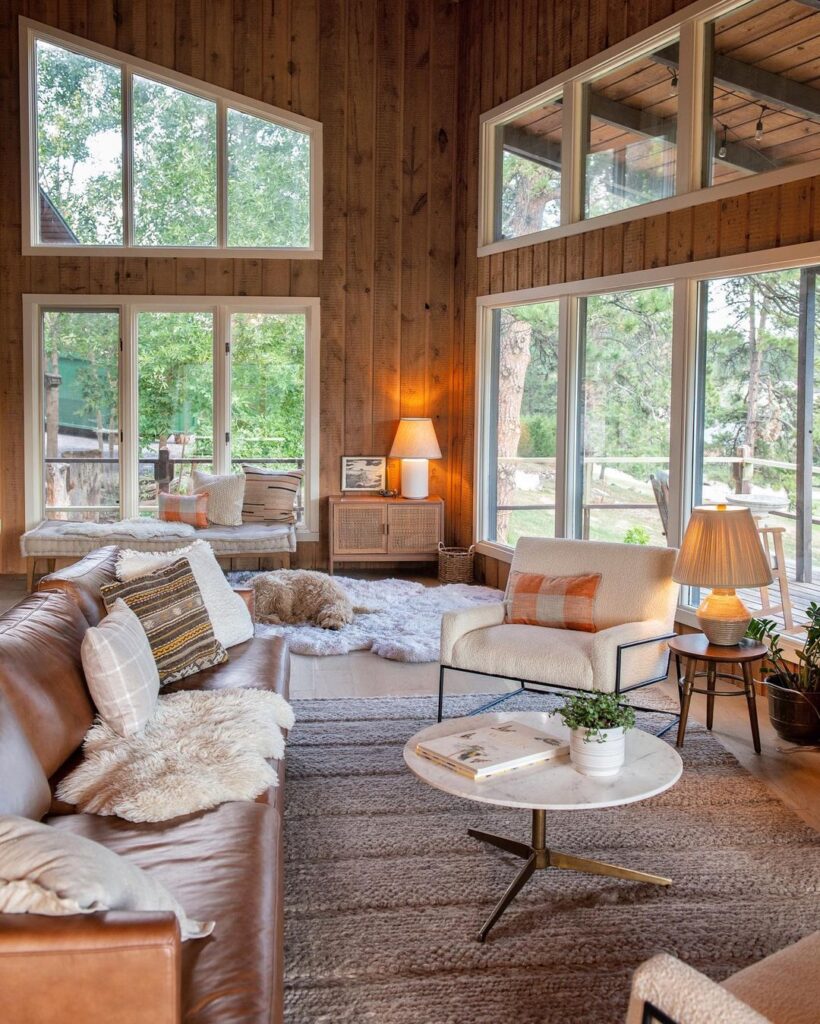
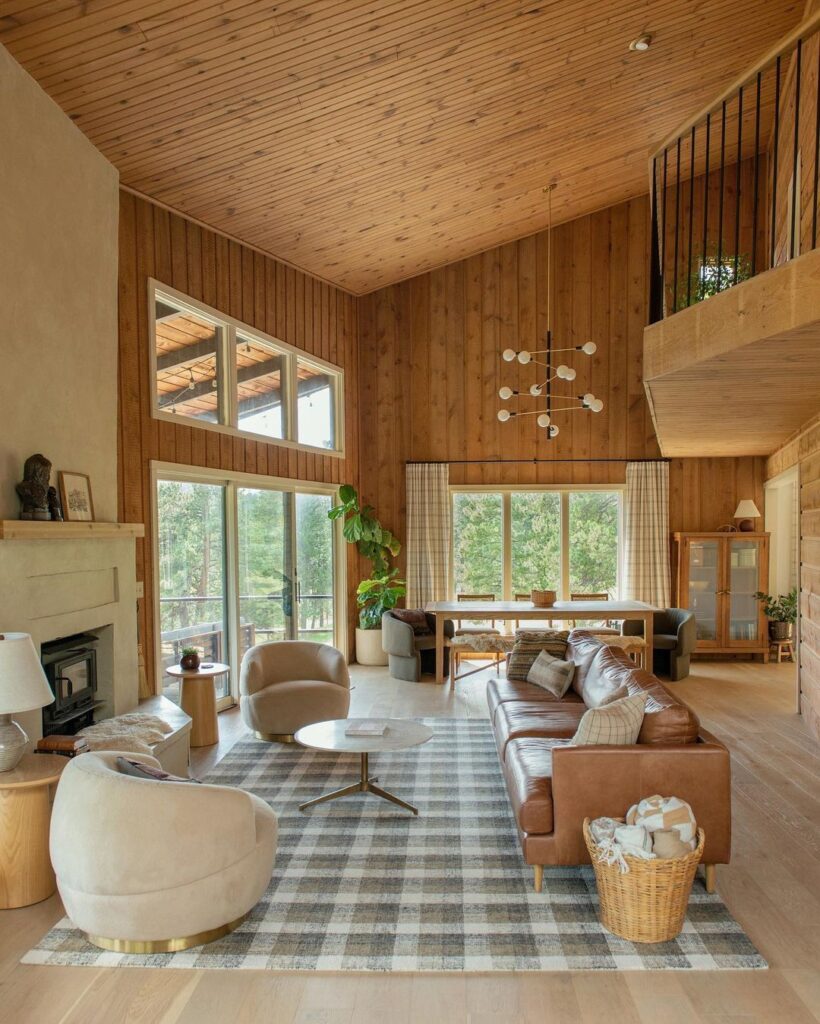
Jodi also creates homeschool curriculums and has recently published a book! You can check all of her work out on her website by clicking here!
Outdoor homeschool room
Not every family has a dedicated room to spare in the house and some just happen to live in a place that has great weather all year round. Whatever the case, some families have found that an outdoor “classroom” is a great place to homeschool!
This works in very different ways for each family. Some families still have a homeschool room, but choose to learn outside whenever they can. Some don’t have a designated room and use up every corner of their homes, including their outdoor spaces. And some… really take homeschooling outdoors to the next level.
Ellen Fisher is one of those homeschool moms. She and her husband homeschool their 5 kids mainly on the large porch of their Hawaiian home. They also integrate amazing outdoor experiences and take learning with them wherever they go.
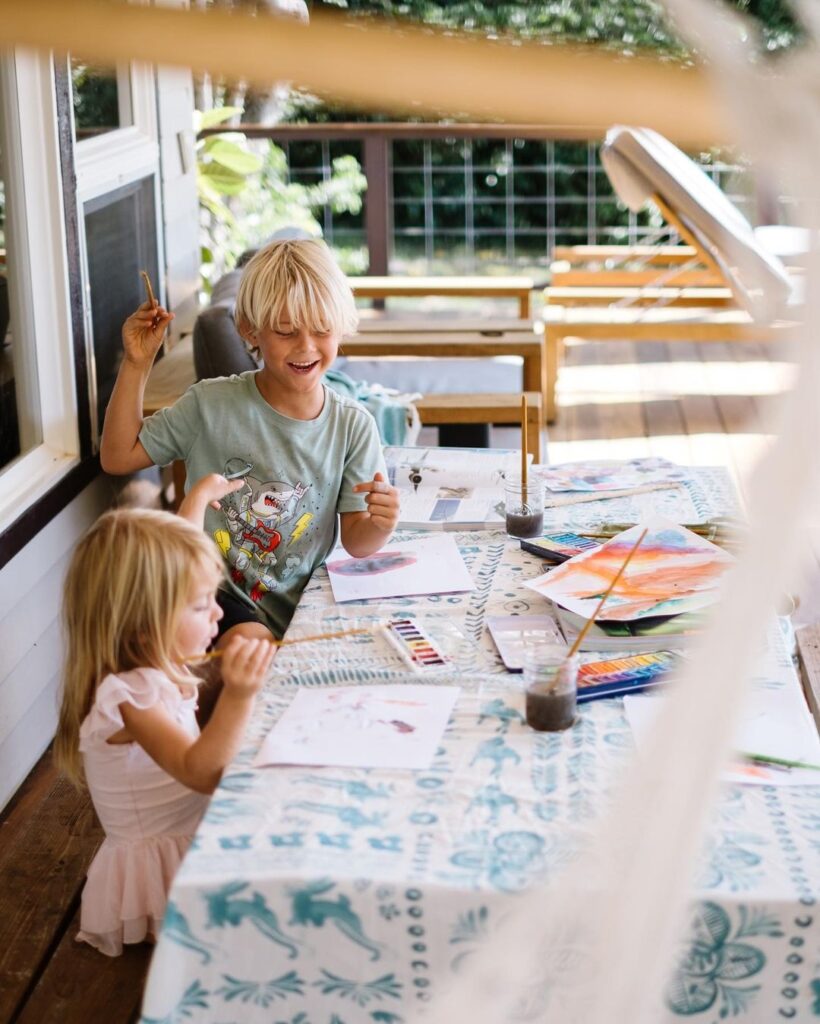
Check out her Instagram here!
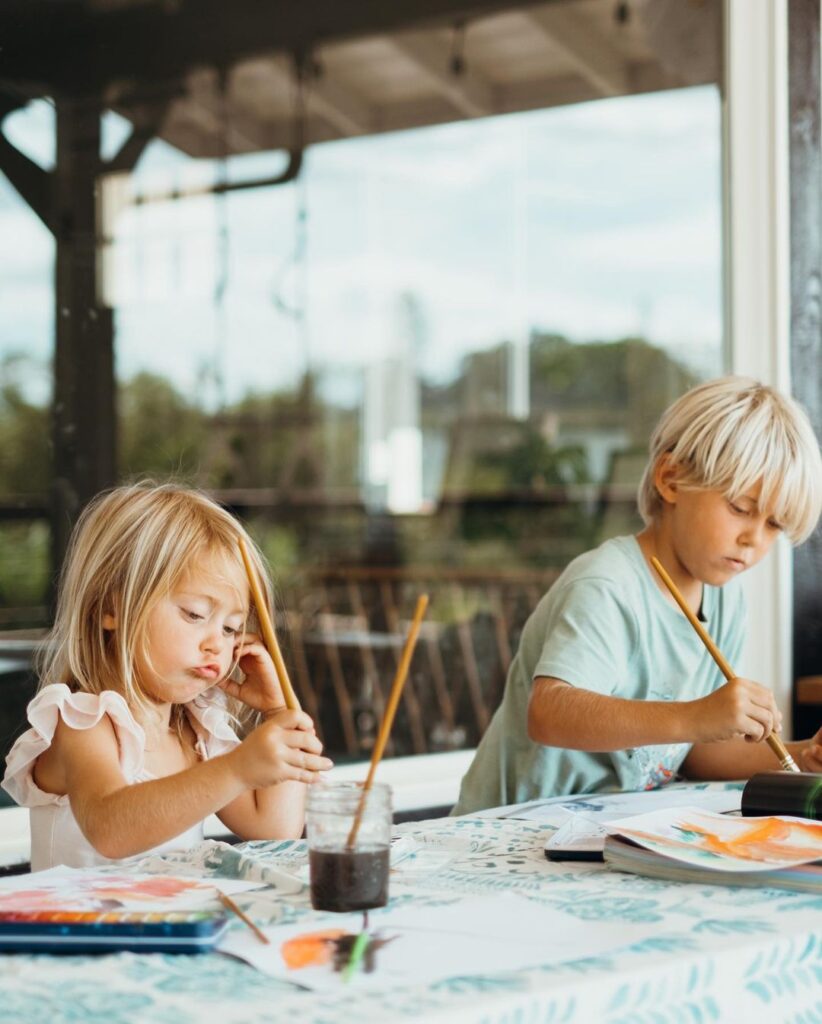
Ellen dives deeper into their homeschool curriculums, resources, schedules, and flow in this YouTube video.
I hope this gave you some homeschool room ideas and inspirations, even if you don’t have a designated room! I guess the main point here is creating a space that feels like home for your family. It’s more than just designing a physical space – it’s about cultivating a culture of connection, creativity, and growth within your family.


